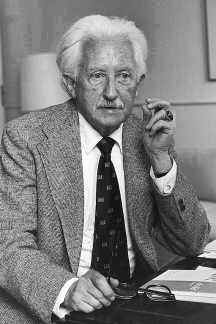Erik Erikson: Citáty v angličtine
"The Problem of Ego Identity" (1956), published in Journal of the American Psychoanalytic Association, 4:56-121
Young Man Luther : A Study in Psychoanalysis and History (1958), p. 70
Kontext: Someday, maybe, there will exist a well-informed, well considered and yet fervent public conviction that the most deadly of all possible sins is the mutilation of a child’s spirit; for such mutilation undercuts the life principle of trust, without which every human act, may it feel ever so good and seem ever so right is prone to perversion by destructive forms of conscientiousness.
Gandhi's Truth : On the Origins of Militant Nonviolence (1969), Prologue : Echoes of an Event, p. 39
Kontext: All world-images are apt to become corrupt when left to ecclesiastic bureaucracies. But this does not make the formation of world-images expendable. And I can only repeat that we deny the remnants of old-world images at our own risk, because we do not overcome them by declaring them — with all the righteousness of skepticism — something of a secret sin. They are not less powerful for being denied.
“Healthy children will not fear life if their elders have integrity enough not to fear death.”
Childhood and Society (1950), p. 269
“Doubt is the brother of shame.”
"The Problem of Ego Identity" (1956), published in Journal of the American Psychoanalytic Association
